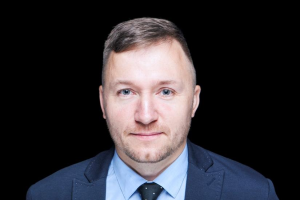During the COVID-19 pandemic, various restrictions were introduced in Poland and many other countries to stop the spread of the SARS-CoV-2 virus. These restrictions included wearing masks in public areas, a ban on gatherings, limited number of people shopping at the same time.
Strong group identity can be beneficial not only for individuals but also for the whole community. However, when group identity is motivated by frustrated psychological needs, such as low self-worth or low self-regulation, it can manifest as collective narcissism — a belief that one’s group is exceptional and deserves special treatment. The concept of collective narcissism is most frequently applied to the national context and is called “national narcissism”.
Shops, masks and social distancing
Researchers from SWPS University decided to look at the lesser-known effects of the COVID-19 pandemic. They investigated how pandemic restrictions introduced in shops affected the behaviour of shop assistants - and published their research results in PLOS One.
Our goal was to demonstrate that reducing social interactions by covering faces and maintaining distance. These measures may loosen social norms and lead to tangible material losses.

Kościelniak, Maciej
co-author, Institute of Psychology at SWPS University.
Role in the Faculty
{"funkcja-na-wydziale0":{"Funkcja":"","\u0141\u0105cznik":"","Nazwa w mianowniku":"Faculty of Psychology and Law in Pozna\u0144"}}
Role in the Department
{"funkcja-w-katedrze0":{"Funkcja":"Head","\u0141\u0105cznik":"of the","Nazwa w mianowniku":"Department of Social and Cross-Cultural Psychology"}}
Role in the Institute
{"funkcja-w-instytucie0":{"Funkcja":"","\u0141\u0105cznik":"","Nazwa w mianowniku":"Institute of Psychology"}}
Specialization
psychologist
First and last name
Maciej Kościelniak
Academic degree or title
Ph.D. / Assistant Professor
Email
This email address is being protected from spambots. You need JavaScript enabled to view it.
Role in the Research Center
{"funkcja-w-centrum0":{"Funkcja":"","\u0141\u0105cznik":"","Nazwa w mianowniku":"Interdisciplinary Center for Applied Cognitive Studies"},"funkcja-w-centrum1":{"Funkcja":"","\u0141\u0105cznik":"","Nazwa w mianowniku":"Center for Research on Improving Decision Making"}}
Ph.D. / Assistant Professor Maciej Kościelniakpsychologist
The researchers emphasise that while masks are a proven measure of protection against the spread of the virus, covering the face leads to a change in human interactions. It limits the possibilities of drawing conclusions and increases the sense of anonymity.
The study was conducted in 216 grocery shops in Poland, in June-September 2021. The majority of participating shop assistants (over 78%) were women. The shoppers, played by research assistants (two adults in their 50s and two teenagers), were tasked with buying a specific product and giving the seller an amount greater than the actual price of the product. During the study, some research assistants wore non-transparent masks covering the nose and lower part of the face, and the other group wore plastic visors.
Shopping with others means a greater chance for fair treatment
It turned out that wearing a mask or a transparent visor had no impact on the sellers' honesty. What did matter was the number of customers in the shop. A customer who shopped in the presence of other people was more than three times more likely to receive correct change than one who was alone with the seller. The researchers were surprised to find that sellers were more likely to give correct change to shoppers of the same gender as themselves.
The study provides practical insights for policymakers responsible for establishing regulations and social policies during a health crisis, such as the COVID-19 pandemic.
While maintaining social distance is vital for public health, it could inadvertently encourage fraudulent practices. Retail outlets should therefore consider introducing more rigorous monitoring systems. Customers, on the other hand, should be more vigilant to minimise the risk of being cheated.

Kościelniak, Maciej
co-author, Institute of Psychology at SWPS University.
Role in the Faculty
{"funkcja-na-wydziale0":{"Funkcja":"","\u0141\u0105cznik":"","Nazwa w mianowniku":"Faculty of Psychology and Law in Pozna\u0144"}}
Role in the Department
{"funkcja-w-katedrze0":{"Funkcja":"Head","\u0141\u0105cznik":"of the","Nazwa w mianowniku":"Department of Social and Cross-Cultural Psychology"}}
Role in the Institute
{"funkcja-w-instytucie0":{"Funkcja":"","\u0141\u0105cznik":"","Nazwa w mianowniku":"Institute of Psychology"}}
Specialization
psychologist
First and last name
Maciej Kościelniak
Academic degree or title
Ph.D. / Assistant Professor
Email
This email address is being protected from spambots. You need JavaScript enabled to view it.
Role in the Research Center
{"funkcja-w-centrum0":{"Funkcja":"","\u0141\u0105cznik":"","Nazwa w mianowniku":"Interdisciplinary Center for Applied Cognitive Studies"},"funkcja-w-centrum1":{"Funkcja":"","\u0141\u0105cznik":"","Nazwa w mianowniku":"Center for Research on Improving Decision Making"}}
Ph.D. / Assistant Professor Maciej Kościelniakpsychologist
The authors of the publication point out that the scientific discussion tends to overlook the less obvious but significant consequences of pandemic restrictions.
Noticing them is crucial for developing informed policies that will protect social fabric during times of crisis

Kościelniak, Maciej
co-author, Institute of Psychology at SWPS University.
Role in the Faculty
{"funkcja-na-wydziale0":{"Funkcja":"","\u0141\u0105cznik":"","Nazwa w mianowniku":"Faculty of Psychology and Law in Pozna\u0144"}}
Role in the Department
{"funkcja-w-katedrze0":{"Funkcja":"Head","\u0141\u0105cznik":"of the","Nazwa w mianowniku":"Department of Social and Cross-Cultural Psychology"}}
Role in the Institute
{"funkcja-w-instytucie0":{"Funkcja":"","\u0141\u0105cznik":"","Nazwa w mianowniku":"Institute of Psychology"}}
Specialization
psychologist
First and last name
Maciej Kościelniak
Academic degree or title
Ph.D. / Assistant Professor
Email
This email address is being protected from spambots. You need JavaScript enabled to view it.
Role in the Research Center
{"funkcja-w-centrum0":{"Funkcja":"","\u0141\u0105cznik":"","Nazwa w mianowniku":"Interdisciplinary Center for Applied Cognitive Studies"},"funkcja-w-centrum1":{"Funkcja":"","\u0141\u0105cznik":"","Nazwa w mianowniku":"Center for Research on Improving Decision Making"}}
Ph.D. / Assistant Professor Maciej Kościelniakpsychologist
More information in research publication:
Koscielniak M., Marciniak D., Doliński D. (2024), COVID-19 masks and limited number of shoppers as determinants of shop assistants’ (dis)honesty. PLOS ONE 19(1): e0296746.